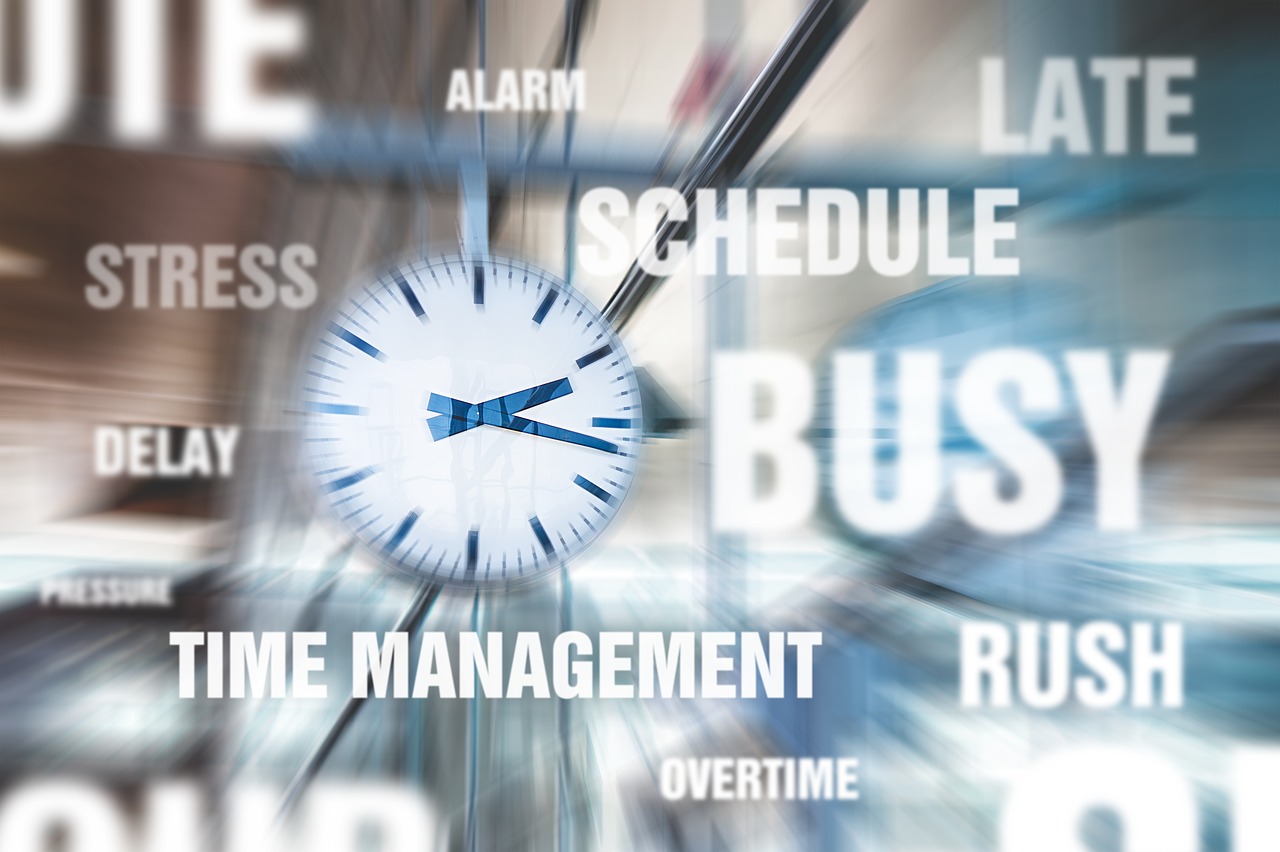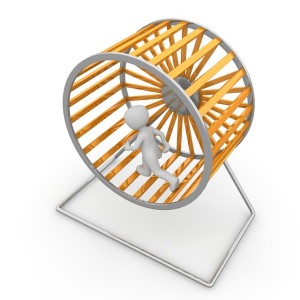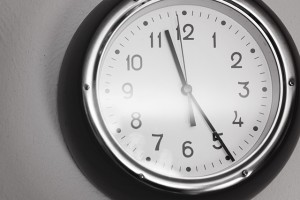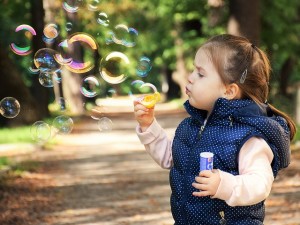
The best designed physical environment, with carefully selected loose parts displayed in the most Reggio of baskets are not worth that much if the emotional environment isn’t right. To me, the emotional environment of a setting can be most simply judged by a few criteria: do the children feel safe, secure, respected and like they belong there? Do the adults feel relaxed, confident in their role, and able to have the presence of mind to interact meaningfully and mindfully with the children? Perhaps most importantly, are the children and adults alike happy to be there?
Just as we might move a shelf to different wall, add or take away some resources, or rearrange other physical objects in our rooms to better fit the needs of the children and our overall aims as educators, we also should be open to new approaches and techniques that help improve the emotional environment. As a team, and individually, this requires us to be honest, reflect and at times be willing to try new things in our practice.
 There are a lot of things that needlessly stress adults and “clutter” up the emotional environments of many settings but this article will only focus on one topic, the daily schedule. Yes, young children thrive on routine and familiarity but I’ve worked in too many places that treat the daily schedule as a cruel and impatient taskmaster.
There are a lot of things that needlessly stress adults and “clutter” up the emotional environments of many settings but this article will only focus on one topic, the daily schedule. Yes, young children thrive on routine and familiarity but I’ve worked in too many places that treat the daily schedule as a cruel and impatient taskmaster.
Over-scheduled and hurried days
If the schedule on the wall states “10:15: Outside Play Time”, many adults rush the children through getting ready as if it were a once-a-day train that we might miss! Not only does nobody involved enjoy this stress, we miss out on opportunities for younger children to increasingly learn to get on jackets, shoes or water-proofs themselves. Instead of investing the time for children to increasingly learn to handle these tasks independently, “doing it for them” because it’s faster ensures we will always be burdened with these tasks.
When I’ve worked in situations like this, my patience went way down, my stress way up and I know the quality of my interactions with the children suffered quite a bit. I would go home every day feeling miserable and upset with myself because I knew I wasn’t giving these children what they needed. I couldn’t keep up with the pace demanded by this setting and nobody benefited. I’ve noticed a sort of an unspoken sense of pride amongst some practitioners: look how quickly and efficiently I can get the kids through lunch, or ready to go outside or anything else. While I appreciate working with organised and capable coworkers, I am not sure speed and efficiency should be valued over the quality of our interactions.
Parents (who might know much about early childhood development) might like the look of a timetable with 30-45 minute intervals titled things like Literacy or Work Time, thinking this is what will get their children ready for school, but these sorts of schedules do not allow children enough time to truly get engaged in anything.
Time and space to play
Many days children need time to suss out their play options before getting into something truly engaging. A rule of thumb I agree with says children need at the very least an hour of free play at a time to truly get into some engaging play and to see it through to a satisfying end. Settings I admire (like Discovery Early Learning Center in the USA) have changed their environment, schedule and approach over time as they’ve learned to trust in following the pace of the children. These days they simply let the children play all day. The pictures from their Facebook page show children absolutely brimming with engagement, curiosity, well-being, persistence, confidence and everything else a quality early years setting should strive for.
Some adults can be tactful about it, others more bossy but one of the worst parts parts of  transitions is the fact adults have to interrupt children in the middle of their play. On an episode of the podcast “That Early Childhood Nerd,” Heather Bernt, an American consultant says we “teach children not get engaged by our interruptions.” Her guest, Tiffany Pearsall, asks if you only had 15-30 minutes to engage in something you enjoy as an adult – knitting, reading, cooking a nice meal etc. – would you really get into it, much less bother at all? I’d add to this: How would you react if you were happily in the middle of perfecting a new recipe and someone told you it was time to put your kitchen tools away before you were truly finished? Many interruptions are unavoidable given the realities of group-based education and care but I do think we should give children’s play the same respect we would as the favourite hobby of any adult.
transitions is the fact adults have to interrupt children in the middle of their play. On an episode of the podcast “That Early Childhood Nerd,” Heather Bernt, an American consultant says we “teach children not get engaged by our interruptions.” Her guest, Tiffany Pearsall, asks if you only had 15-30 minutes to engage in something you enjoy as an adult – knitting, reading, cooking a nice meal etc. – would you really get into it, much less bother at all? I’d add to this: How would you react if you were happily in the middle of perfecting a new recipe and someone told you it was time to put your kitchen tools away before you were truly finished? Many interruptions are unavoidable given the realities of group-based education and care but I do think we should give children’s play the same respect we would as the favourite hobby of any adult.
Minimising transitions
If you are currently in a setting with an over-scheduled day, consider minimising the transitions and chopped up parts of the day. If some transitions are truly unavoidable, is it always the end of the world if you get off-schedule a bit some days? Do you worry what your co-workers will think if you can’t herd the kids to the next thing like they do? If so, is it possible to talk to them about it? If you’re worried you won’t get good observations in a certain area of development, could you bring something specific into provision? Or perhaps get some mentorship on how to further see all of the learning inherent in children’s play? If you are lucky enough to be in a setting that values long stretches of play time, are there still any “sticking points” in the day that might be worth discussing with your team?
Young children’s brains are in a distinct and sensitive stage. What education should look  like for them should not be confused with getting them to sit still because that will be expected of them in a few years. “Learning time” is every single second of the day they are with us. Young children’s brains don’t stop growing when they are getting jackets on to go outside, fighting over toys, having runny noses, getting their nappy changed, eating meals, or falling down and skinning knees. These aren’t parts of the day to impatiently rush through so we can get to the part of the schedule where we think we put our “teacher hats” on. Rather, these seemingly insignificant parts of the day really are valuable opportunities for connection, learning and growth.
like for them should not be confused with getting them to sit still because that will be expected of them in a few years. “Learning time” is every single second of the day they are with us. Young children’s brains don’t stop growing when they are getting jackets on to go outside, fighting over toys, having runny noses, getting their nappy changed, eating meals, or falling down and skinning knees. These aren’t parts of the day to impatiently rush through so we can get to the part of the schedule where we think we put our “teacher hats” on. Rather, these seemingly insignificant parts of the day really are valuable opportunities for connection, learning and growth.
Over-scheduled and hurried days do not give children the time and space they require to engage, persist, experiment, think critically or deeply engage in their play. When we streamline the daily schedule and minimise the transitions, we can use our patience and energy for more meaningful and mindful interactions instead of burning through it quickly trying to keep a group of young children in line and on schedule.
Should our job be ‘herding cats’?
Our daily schedules shouldn’t just be randomly thrown together or “what we’ve always done.” In my opinion, schedules should include long stretches of free play time (with constant access to outside), minimal transitions and move at the pace of the children. More than anything else though, schedules should best serve the actual, specific needs of the actual, specific children in our settings. This means they will change as the children grow, leave or as new children join us. Serving the best needs of the children also means they are sustainable and not needlessly stressful for the adults. Figuring this all out will take observation reflection, discussion and the freedom for educators to experiment.
 A lot of us like to joke our job is like “herding cats,” but when are we going to realise that cats aren’t meant to be herded? Just like a spring cleaning and decluttering of a room, if something in the schedule is not helping the relationships and emotional environment of a setting maybe it needs to be changed or even chucked out!
A lot of us like to joke our job is like “herding cats,” but when are we going to realise that cats aren’t meant to be herded? Just like a spring cleaning and decluttering of a room, if something in the schedule is not helping the relationships and emotional environment of a setting maybe it needs to be changed or even chucked out!
David Cahn has worked in Early Years since 2007 in the US, Australia and currently as an educator in a Children’s Centre in Leeds, England. He blogs at childcarebrofessional.wordpress.com and offers workshops for Early Years settings on Adults Rediscovering and Respecting Play. He can be contacted through facebook or twitter.
This blog was originally published in the Early Years Collective E-Zine, Issue 1.

